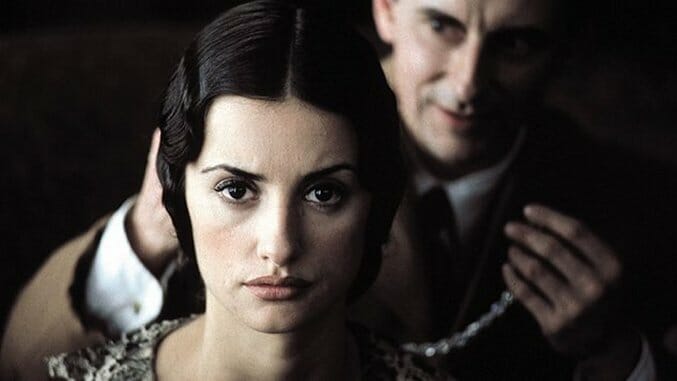The Queen of Spain

Despite being top-billed in Fernando Trueba’s The Queen of Spain—sequel to his 1998 film The Girl of Your Dreams—Penélope Cruz only appears for its first half hour, and then mostly in a slyly edited newsreel-style combination of real and faux-historical footage of her embodying the glamor of the screen sirens of the 1950s. Cruz’s character, the kindhearted but tempestuous Macarena Grenada, preens and flashes bright smiles, ducking into a limousine surrounded by fans, remaining ever at arm’s length. For those who have not seen The Girl of Your Dreams, keeping Macarena at a very deliberate distance creates a sense of mystery and suspense that lingers until she makes her way to the film’s action proper. Much in the way that 2015’s The Man From UNCLE brought the audience up to speed (in terms of historical background) during the opening credits via snappy newspaper clippings, the first moments of The Queen of Spain prime us for the film’s engagement with artifice, juxtaposing voiceover narration, Macarena and snippets of actual historical events before bringing us to the film’s setting: Francisco Franco’s fascist Spain.
Macarena, you see, has returned from the United States, where she has been cavorting with the likes of Marlon Brando and Cary Grant, to film a movie about Queen Isabella of Castile in a transparent attempt by Franco’s government to use art as propaganda. Obsessed with creating monuments to himself, Franco is all too glad to use American dollars (and blacklisted American screenwriters) to boost the image of his oppressive government all around the world. What better way to suggest a new glorious era for Spain—as well as give a warning to any enemies of the state—than evoking the bloody reign of Ferdinand and Isabella, starring a universally and internationally beloved star?
It eventually becomes clear that The Queen of Spain is trying to position itself as Singing in the Rain by way of Armando Iannucci. Making a film about filmmaking is nothing new, so the political context of the claustrophobic, frightening nature of the government’s control over nearly every part of life in Spain is meant to add some kind of urgency and tension to the proceedings.
-

-

-

-

-

-

-

-

-

-

-

-

-

-

-

-

-

-

-

-

-

-

-

-

-

-

-

-

-

-

-

-

-

-

-

-

-

-

-

-








































